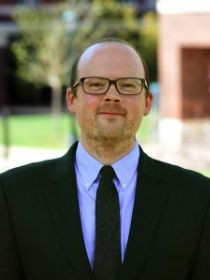
Boris Heersink
Connect with Boris
About Boris
Heersink's research focuses on political parties and election campaigns. Heersink's writings include studies on the influence national party organizations have in American politics, and the way strategic choices and events influence election outcomes.
Contributions
In the News
Publications
Studies a case of catastrophic flooding in the American South in 1927, in which disaster aid was broadly and fairly distributed and Herbert Hoover (the 1928 Republican presidential candidate) was personally responsible for overseeing the relief efforts. Finds that voters punished Hoover at the polls: in affected counties, Hoover's vote share decreased by more than 10 percentage points.
Explores the nature of presidential power over the party-in-organization, and whether Trump can take advantage of his control over the Republican National Committee. Shows that presidential domination over the party-in-organization is based on the president's ability to nominate and replace the national committee's chair, and that presidents have used this power to push their committees to promote both their preferred policy positions and themselves.
Argues that existing studies are constrained by two issues: most studies rely on state-level data, rather than more localized data, and do not incorporate differentiation in the quality of campaign appearances in their assessment of visit effects. Studies the 1948 presidential election, during which Harry Truman engaged in a major whistle-stop train tour and won a surprise victory over his opponent, Thomas Dewey.
Suggests that vice-presidential candidates increase their tickets' performance in their home states by 2.67 percentage points on average — considerably higher than previous studies have founds. Argues that the vice-presidential home state advantage could have swung four presidential elections since 1960, if presidential candidates had chosen running mates from strategically optimal states.
Argues that seeing the Democratic and Republican National committees as 'service providers' has missed a crucial role national committees play in American politics, namely that national party organizations publicize their party's policy positions, and in doing so, attempt to create national party brands.